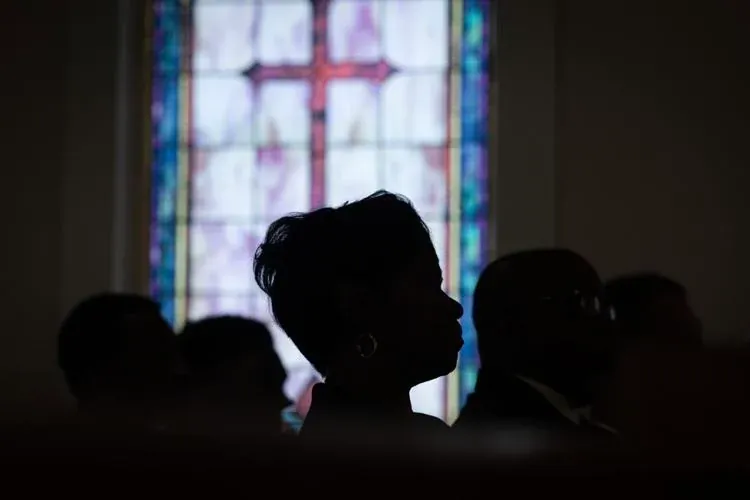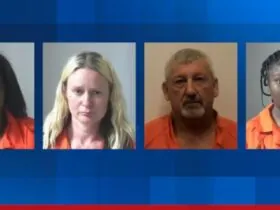Alabama’s history is marked by a persistent presence of the past. Surprisingly, the state has never witnessed the election of a Black U.S. senator, and the number of Black representatives chosen for the U.S. House is a mere six.
According to Justin Levitt, a professor at Loyola Marymount University Law School and senior policy adviser for democracy and voting rights under President Joe Biden, the Milligan ruling may have the potential to bring about significant changes. However, the impact of the ruling has been diminished due to the manner in which it was implemented.
The U.S. Supreme Court heard the case in October 2022, but the decision wasn’t announced until eight months later, following the Alabama midterm elections.
Levitt, who developed a comprehensive database for monitoring lawsuits and legislation pertaining to redistricting, expressed that it caused a delay in the dispensation of justice.
Sheila Tyson, a commissioner representing Jefferson County’s District 2 and a lifelong advocate for voting rights, emphasized that this type of work requires unwavering determination and long-term dedication.
“We were born with the NAACP card,” Tyson recalled, chuckling. “I think I had that even before I had a birth certificate.”
At the age of 10, Tyson recalls riding her bike through various neighborhoods while her mother went door to door, encouraging people to vote.
As a teenager, Tyson continued to carry on with his work.
Pushback, past and present
This Article Includes [hide]
“To become the president of the United States, an individual must meet one of the following age requirements: 25, 35, 40, or 45 years old. It sounds simple, doesn’t it?”
Only nine minutes remain.
“What groups would need to vote in favor for the proposal of combining Alabama and Mississippi into a single state?”
Only six minutes remain. What’s the next question?
“Write the word ‘noise’ backwards in the space below and place a dot over the second letter if it had been written forward.”
It only takes three minutes.
In the Southern states, during the Jim Crow era, literacy tests were conducted to assess the reading skills of potential voters. These tests often involved tasks such as reciting government procedures and facts within a set time limit.
Voting rights advocates argue that the Alabama Legislature, along with lawmakers in other states, is perpetuating this legacy by introducing bills that ultimately make it more challenging for individuals to exercise their right to vote.
In March, Gov. Kay Ivey signed a new law that criminalizes the act of knowingly paying or providing a gift to assist a voter in filling out an application for an absentee ballot. However, there are exceptions to this law, particularly for voters with disabilities.
According to Simelton, the law is perceived as a direct assault on the NAACP’s efforts to assist low-income and Black voters. The organization plays a crucial role in guiding individuals through the voting process, providing aid with tasks such as voter registration and absentee ballot applications. However, with the implementation of this new law, even harmless gestures like offering a slice of pie or providing bottled water could potentially be classified as gifts, Simelton explained.
Dowdy expressed concern that those votes might be lost in November.
In a news release, Wes Allen, the secretary of state for Alabama, stated that the purpose of the legislation is to ensure the security of elections by addressing the issue of “ballot harvesting.” This refers to the practice of collecting and submitting ballots by volunteers or workers who are not directly involved in the election process.
He hailed it as a triumph for Alabama elections.
According to Tyson, state leaders took additional actions that made it harder for people to vote, such as closing and relocating polling locations, particularly in predominantly Black precincts. She emphasized that without transportation, assistance, and financial resources, individuals are less likely to prioritize voting.
After the 2020 election, then-Secretary of State John Merrill initiated the process of removing voters from registration lists, specifically targeting individuals who had been convicted of a felony within the last two years. When leaders from Greater Birmingham Ministries requested access to the complete list, they were informed that they would need to pay an exorbitant fee of over $1,000 to obtain the records. In response, they decided to take legal action by filing a lawsuit, but unfortunately, they were unsuccessful in their endeavors.
The federal level also imposes restrictions. Over the years, the Supreme Court has at times scaled back certain provisions of the Voting Rights Act.
In November, a federal court made a significant ruling in a case originating from Arkansas. This ruling overturned 60 years of precedent by stating that individuals and organizations are no longer able to file lawsuits regarding voting practices that potentially discriminate based on race. While this decision primarily impacts seven states in the South and Midwest, there are concerns that it will create challenges in upholding voting rights across the entire nation.
The U.S. Supreme Court made an important decision in 2013 in the case of Shelby County. They ruled that states no longer require approval from the U.S. Department of Justice for most changes to voting measures. This decision is seen by some as removing a safeguard that was in place to prevent discrimination.
In June, a solemn march took place in Alabama, right in front of the Shelby County Courthouse, as a way to mourn the tragic loss that occurred 11 years ago.
Simelton, speaking to the crowd, expressed the deep impact that the incident had on their hearts and minds.
However, the Justice Department still had the power to influence redistricting.
Walking the Wire: A Thrilling Tension Adventure
Redistricting plays a crucial role in upholding the integrity of the voting system. It establishes the geographical boundaries that determine where individuals can exercise their right to vote and determines the representatives who will advocate for their interests in various levels of government.
Redistricting plays a crucial role in determining the outcome of school board elections, as well as influencing the availability of essential classroom resources and textbooks. Additionally, it has a direct impact on community development, such as the renovation of parks and the establishment of homeless shelters. Moreover, the decisions made during redistricting shape the representation of communities in Congress, greatly influencing whether the interests and concerns of constituents will be adequately addressed.
According to Levitt, a law professor at Loyola, it is important to recognize the significance of your vote, especially when the districts in your area were specifically created to cater to your needs and concerns.
According to him, the intended way of redistricting should ensure that deeply conservative residents are represented by deeply conservative elected officials, while more liberal residents are represented by more liberal officials.
According to Levitt, the system is not designed to produce specific political outcomes, but rather to be responsive to the preferences of voters.
Every decade, the Justice Department mandates states to review their voting boundaries to ensure fairness and prevent racial discrimination, aligning with the census.
According to the Brennan Center for Justice, a nonprofit public policy institute, there have been over 80 cases filed challenging district maps in the U.S. since 2020. These cases mark the beginning of the battles over redistricting.
The South accounts for half of those cases.
The U.S. Supreme Court ruled in May that the South Carolina Legislature had wrongly excluded 30,000 Black residents from Charleston County. Currently, there are two ongoing lawsuits in Arkansas’ largest county alleging that the state Legislature purposely drew racially biased maps that diluted the voting power of Black individuals. Additionally, there are eight cases in Texas where maps are being challenged, with allegations of racial discrimination.
Redistricting has the potential to siphon power, according to voting rights advocates.
According to a study conducted by the Pew Research Center in January, the South is home to nearly 60% of eligible Black voters in the United States. In the upcoming election, Black voters are expected to make up 14% of the country’s eligible voters.
Experts say that the current voting restrictions are a distorted version of the past, albeit with a more subtle approach.
In Birmingham, Mobile, Selma, and Montgomery, the South has a rich and enduring presence that blends centuries-old traditions with contemporary influences.
The Civil War-era mansions grace expansive green lawns, where toddlers frolic on grass that bears the imprints of past struggles, marked by the presence of marchers and remnants of discriminatory “Whites Only” signs. The only shadows that can be seen are cast by towering air-conditioned high-rises, shielding residents and visitors from the relentless humidity. Both long-time locals and newcomers extend warm hospitality with a charmingly melodic “Bless your heart.”
Churches hold a significant place in the heart of the American South.
Reverend Kenneth Dukes views the convergence of his personal faith and his voting decisions as a limitless Autobahn.
Simelton concurs, describing voting as an act of reverence.
“We can’t just settle for empty words,” he emphasized. “It’s crucial for the pastor to passionately preach about the biblical significance of fulfilling our civic responsibilities and urging people to exercise their right to vote.”
As Tyson made her way through 1970s Birmingham, clutching a voter registration clipboard, she couldn’t help but notice the power of faith in mobilizing voters.
“The church had a significant impact on the people in the community, not just in terms of voting, but also in areas such as public health, education, motivation, and mobilization,” she emphasized. “All of these aspects were actively pursued within the church.”
In June, churches in Mobile and Monroeville held Saturday rallies, which began with prayer and calls to action. The Milligan plaintiffs, who were advocating for voting rights in the new majority-Black district, were warmly welcomed by the churches.
Simelton emphasized the importance of exercising our right to vote, acknowledging the sacrifices made by our ancestors who fought, died, and bled for this right. Speaking passionately from the pulpit in Mobile, he led the crowd in a call and response about the significance of voting. Simelton stressed that it would be a travesty if we fail to participate in the electoral process.
Legacy, belief and change
Advocates emphasize that the sanctity of the vote is deeply felt and evident in various settings, including courtrooms, churches, and historic neighborhood parks.
On a scorching summer day in June, Tyson, the county commissioner, pays a visit to Memorial Park. As she arrives, a delightful chorus of little boys greets her with enthusiasm, exclaiming, “Hello, Miss Tyson!”
Standing near a sign, she observes the commemoration of the May 5, 1963, Miracle Sunday Prayer Vigil. The vigil was organized in response to the imprisonment of civil rights demonstrators, showcasing the local community’s commitment to activism and protest.
Tyson ensured that similar markers, commemorating the countless individuals who fought for democracy, were installed at various historic locations throughout the county.
According to Tyson, democracy is currently in a state of disarray. However, she emphasizes the importance of persevering and continuing to advocate for it.
She urged him to make a decision and choose which side of history he wanted to be on.







Leave a Reply